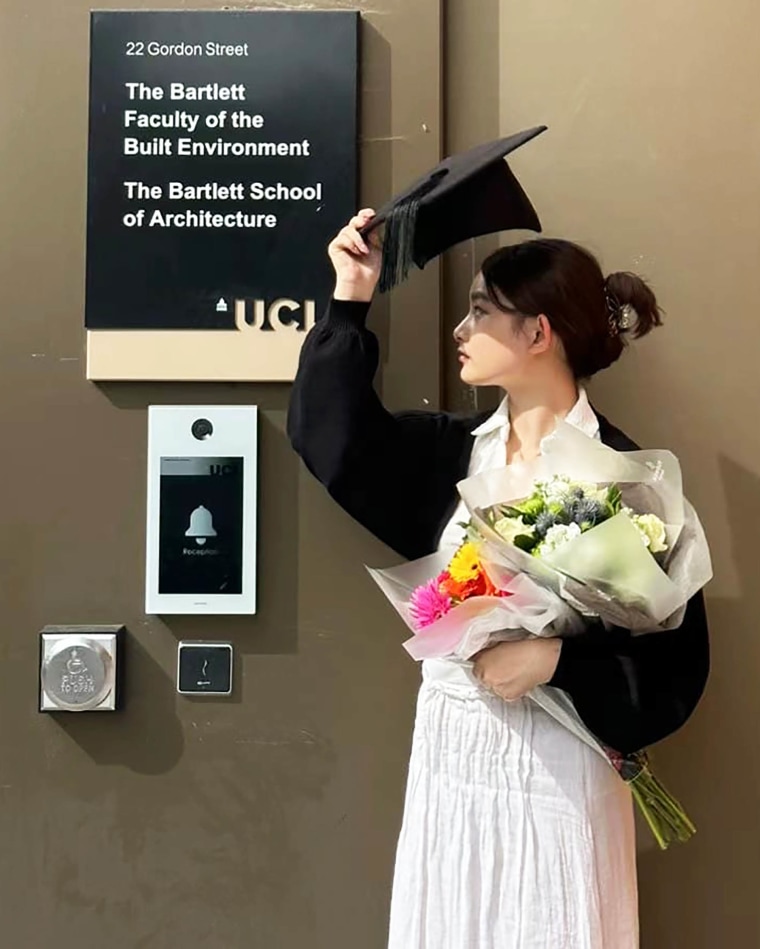Overseas schools are eager to take international students affected by Trump’s Harvard ban
HONG KONG — If President Donald Trump doesn’t want international students at Harvard, there are plenty of foreign governments and universities happy to take them — along with their talents that have helped make the United States a global tech and scientific leader.
The future of international students at the oldest, richest and most renowned university in the U.S. is uncertain after the Trump administration announced a ban on their enrollment starting in the 2025-26 academic year.
After Harvard refused to turn over extensive data about its international students, Homeland Security Secretary Kristi Noem said the school was being held accountable for “fostering violence, antisemitism, and coordinating with the Chinese Communist Party on its campus.”
Harvard has sued over the move, calling it unlawful, and on Friday a federal judge in Boston put it on hold for two weeks. If the Trump administration prevails, new international students would be barred from enrolling at Harvard while current ones would be forced to either transfer elsewhere or lose their legal status.
U.S. universities including Harvard rely heavily on international students, who often pay far more in tuition than their American classmates. Many of them end up staying in the U.S., where they have been responsible for major breakthroughs in strategically important fields such as artificial intelligence where the U.S., China and other nations are locked in intense competition.
Trump’s campaign against Harvard is a “terrible policy error” that could undermine the world-leading role the U.S. has played in research and development since World War II, Simon Marginson, a professor of higher education at the University of Oxford, told NBC News in an email Monday.
A downturn in international students would affect American universities’ “talent pipeline” and income, while benefiting U.S. competitors, he said. “China will become significantly more attractive than before to students and researchers from the Global South,” he said, adding that “Western Europe will also gain significantly.”
There was already growing unease among international students at U.S. universities amid anti-immigrant rhetoric by Trump, in addition to deep funding cuts and efforts to intervene in universities’ internal operations. Hundreds of students’ visas have been revoked, while the Trump administration has detained and sought to deport others over pro-Palestinian and other activism.
At Harvard, more than a quarter of the student body of about 25,000 comes from overseas and the looming ban has caught up students from more than 140 countries, including the future queen of Belgium.
Harvard’s biggest group of overseas students, about 20%, come from China, which was long the top source of international students in the U.S. before being overtaken by India last year.
The number of Chinese students in the U.S. has been dropping —to about 277,000 during the 2023-24 school year, compared with more than 372,000 in 2019-20 — due to disruptions from the Covid-19 pandemic as well as growing U.S.-China tensions.
Chinese academics were also driven away by the China Initiative, a national security program from Trump’s first term that drew accusations of racial profiling. Many of them have moved their research to Chinese universities.
Responding to the Harvard ban, Beijing said U.S.-China educational cooperation is “mutually beneficial” and that it would “safeguard the legitimate rights and interests of Chinese students and scholars overseas.”
“China has consistently opposed the politicization of educational exchanges,” Foreign Ministry spokesperson Mao Ning said at a regular briefing in Beijing on Friday. “Such actions by the U.S. will only damage its own image and international credibility.”

Izzy Shen, 23, an incoming Harvard student from Beijing, said her visa application was refused hours after Trump’s Harvard ban.
“I didn’t expect it to be so fast,” said Shen, whose application had already been marked “approved.”
Shen, who was admitted to Harvard’s Master in Design Engineering program, said she remained “relatively optimistic” and that the situation would “get clearer” after the injunction hearing Thursday.
Duo Yi, who was admitted to the PhD Public Policy program at Harvard Kenny School, said she is now exploring other options amid growing uncertainty about her enrolment. Trump is “simply too unpredictable,” she said. “I have no way of knowing what direction his future policies will take.”
Foreign governments and universities are not waiting to woo the Harvard students spurned by Trump. In the Chinese territory of Hong Kong, officials have urged universities to take proactive action “to attract top talent.”
Hong Kong’s “doors are wide open” to “any students who face discrimination and unfair treatment in the U.S.,” John Lee, the city’s top leader, said Tuesday.
Hong Kong has four universities in the top 100 of U.S. News & World Report’s Best Global Universities Rankings, which is topped by Harvard, though experts say academic freedom in the former British colony of 7.5 million people has eroded since Beijing imposed a national security law in 2020.
The Hong Kong University of Science and Technology said Friday that Harvard undergraduates and postgraduates, as well as students with confirmed offers of admission, were welcome to study there instead.
Europe has also sought to lure scientists worried about funding cuts and freedom of research under Trump, launching a $570 million initiative this month called “Choose Europe.”
Though she did not mention Trump by name, European Commission President Ursula von der Leyen emphasized “free and open research” in a speech promoting the initiative at Sorbonne University in Paris.
“As threats rise across the world, Europe will not compromise on its principles,” she said. “Europe must remain the home of academic and scientific freedom.”
Despite concerns about the Harvard ban, Alex Zeng, an overseas education consultant based in the southern Chinese city of Guangzhou, said American universities remained the top choice for many Chinese students.
“The rich still want to go to the U.S. for education,” Zeng said.





